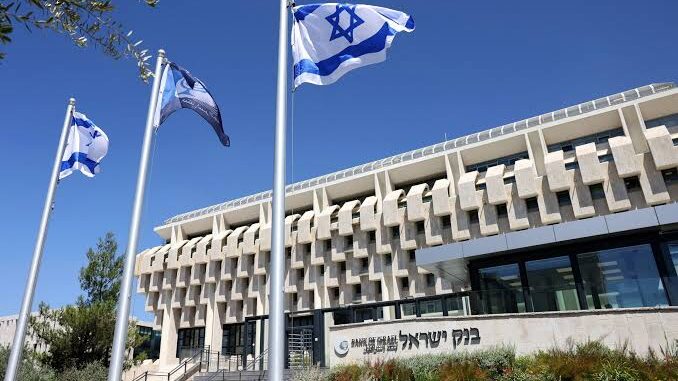
The Bank of Israel said it will sell up to $30 billion of foreign currency in the open market, the central bank’s first-ever sale of foreign exchange, to maintain stability during the war with Palestinian militants in Gaza.
It disclosed this on Monday, October 9, 2023, as the shekel fell 2.2% versus the dollar to 3.924 – its lowest since 2016 – after the announcement, then steadied.
“The bank will operate in the market during the coming period in order to moderate volatility in the shekel exchange rate and to provide the necessary liquidity for the continued proper functioning of the markets,” it said in a statement.
The central bank also said it would provide liquidity through SWAP mechanisms in the market of up to $15 billion.
“The Bank of Israel will continue monitoring developments, tracking all the markets, and acting with the tools available to it as necessary,” it said.
ALSO READ: UN-mandated investigation into Ethiopia atrocities lapses
The shekel was already weak, down 10% against the U.S. currency so far in 2023, partly due to the government’s judicial overhaul plan that has sharply curtailed foreign investment.
“Despite our expectation of a weaker Shekel in the medium term – softer tech equity flows, a more complex political background and more two-sided risks to monetary policy – we do not expect further sustained bouts of shekel weakness,” Citi economists said in a report.
Israeli stock and bond prices slid 7%on Sunday, a day after Hamas gunmen burst across the fence from Gaza in the deadliest incursion into Israeli territory since Egypt and Syria’s attacks in the Yom Kippur war 50 years ago.
On Monday, key Tel Aviv share indices (.TA35), (.TA125) were down as much as another 0.3% in afternoon trading, while government bond prices fell as much as 1%.
Israel’s dollar-denominated government bonds also fell sharply in early European trading as investors got their first chance to react to the unprecedented weekend attack.
Most bonds were down between 1.5 and 4 cents although the 2120-maturing ‘100 year’ bond was down over 5 cents at just 65 cents in what was close to being its biggest ever daily drop.
Citi said that in corporate debt, it was likely the primary market activity for Israel’s banks and corporates will be shut in the near-term.
Israel has amassed forex reserves of more than $200 billion, much of it from buying forex since 2008 to try and keep the shekel from strengthening too much and harm exporters as foreign inflows to the country’s tech sector soared.
The last time the bank intervened was in January 2022.
Last month, Bank of Israel Governor Amir Yaron told Reuters that despite the sharply weaker shekel that has helped to push up inflation, there was no need to intervene since there were no market failures.




